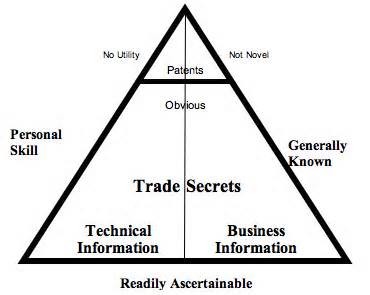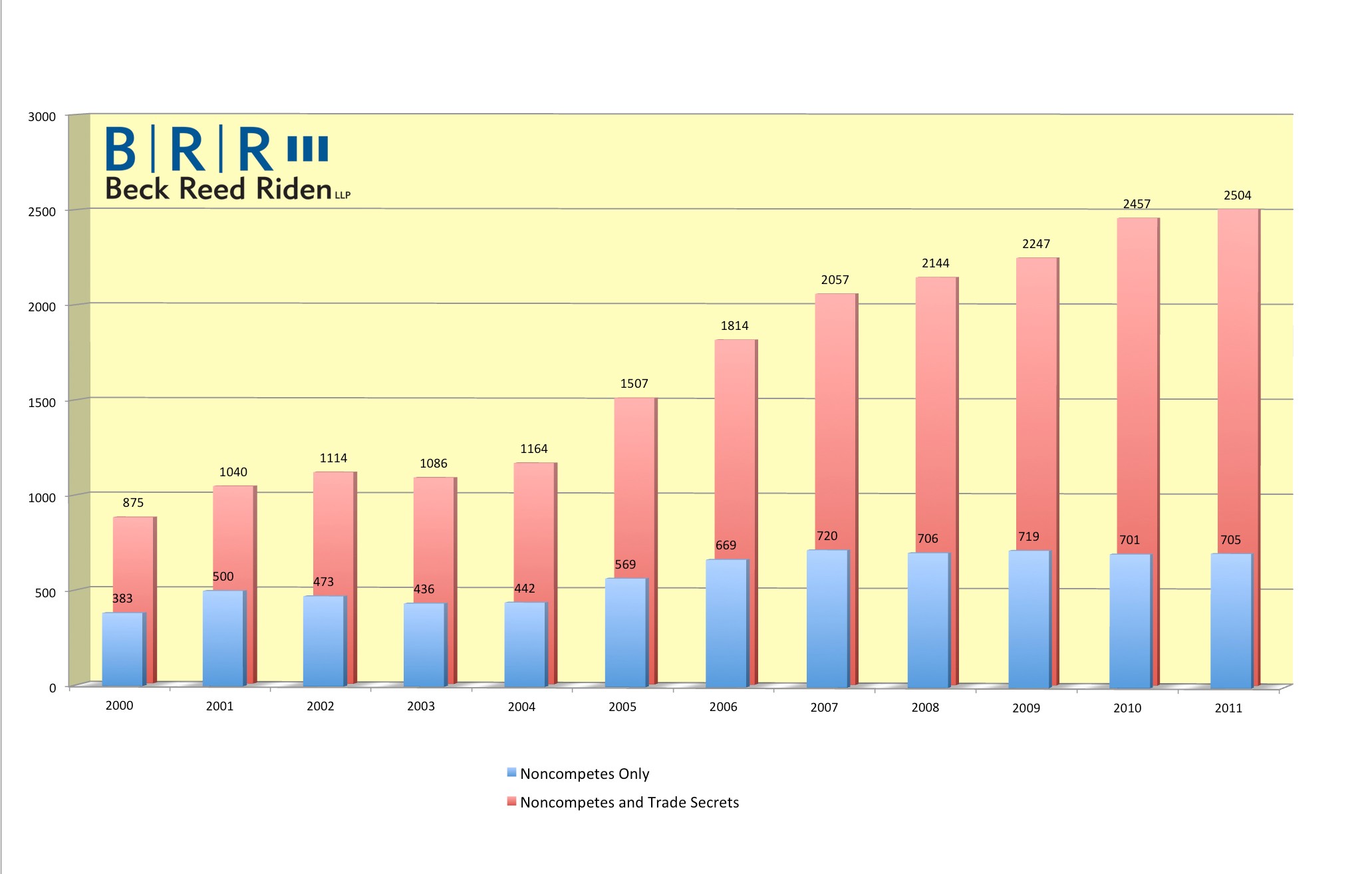TRADE SECRET (US Uniform Trade Secrets Act)
- A formula, practice, process, design, instrument, pattern, or compilation of information which is not generally known or reasonably ascertainable, by which a business can obtain an economic advantage over competitors or customers.
- Manufacturing, industrial, and commercial secrets
- Names and addresses of scientists
- Composition of formulas
- Analytical methods

- AKA “confidential information” or “classified information”
- Any confidential business information which provides an enterprise a competitive edge may be considered a trade secret.
- Trade secret protection has no definite term.
- It may last as long as the company can keep the context of the trade secret from becoming public knowledge. Accordingly, a company’s confidential information can remain perpetually protected, so long as it remains secret.
- Coca Cola has kept the formula of its base syrup flavouring a secret for over 100 years.
- Polaroid has kept its instant film chemical formula out of public knowledge for decades.
- There is no direct cost for obtaining protection for trade secrets. However, the costs of maintaining a trade secret (developing⁄ entering⁄ enforcing confidentiality agreements, taking reasonable steps to prevent other companies from learning about the secret, etc.) can be great.
- Trade secrets are not protectable from independent discovery or invention, such as reverse engineering. Thus, once the public or a competitor is aware of how to make a product or ascertains the nature and identity of the trade secret, protection is not enforceable.
- Disclosure can occur by:
- publication by the owner, an employee, or someone else
- selling a commercial product that embodies the secret
- inadvertent disclosure by accident or mistake.
- The unauthorised use of trade secret information by persons other than the holder is regarded as unfair practice, industrial or commercial espionage, breach of contract and breach of confidence.
Trade Secret and Noncompete Survey – National Case Graph 2012

...increasingly protected & enforced.
- Pioneer Hi-Bred International vs. Holden Foundation Seeds
- Pioneer claimed that Holden had developed a seed from misappropriated seed, which it claimed were its trade secrets.
- Holden disputed the genetic similarity between its seed and Pioneer’s H3H⁄H43SZ7.
- Three series of tests: electrophoresis, reverse phase high-performance liquid chromatography and growouts.
- Holden argued that the Federal PVPA pre-empted state trade secret law as applied to sexually reproducing plants.
- However, the Appeal Court was not persuaded by the argument and it noted that the Supreme Court has expressly held that trade secret and patent protection can ‘peacefully coexist’.